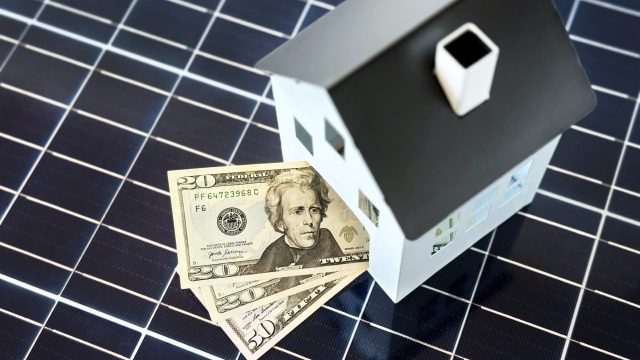
As spring brings about longer, sunnier days, you may want to consider harnessing the sun’s energy to power your house. But given that installing solar panels is a major — not to mention costly — project, it’s only natural to wonder: Are solar panels worth it for your home?
For most people, “installing residential solar panels is worth it because the long-term savings and increase in property value often outweigh the upfront cost,” said MarketWatch. But in some instances, “certain conditions and roof features can mean solar isn’t worth it for you.”
What are the pros of switching to solar?
On the bright side, solar panels can offer the following benefits:
Reduced carbon footprint. Want to save the planet? While “electric power generation was the second-largest emitter of CO2 in 2022,” said Nerdwallet, citing the EPA, “solar energy systems do not contribute to air pollution or emit CO2.” There is an environmental impact associated with the creation and installation of solar panels, but that’s “typically offset in one to four years, depending on the system.”
Electricity bill savings. “Depending on its size and your energy needs, a solar panel system can reduce or eliminate your electric bill,” said CNET. You may even be able to profit from unused energy if your state offers net metering.
Improved home value. “Solar panels can add around $15,000 of value to your home and help your house sell quicker than houses without solar,” said CNET, citing the U.S. Department of Energy’s Lawrence Berkeley National Laboratory.
What are the downsides of solar panels?
Solar does have the following drawbacks that are worth noting as well:
Steep upfront cost. “The average upfront cost of a residential solar power system in the U.S. is between $10,000 and $18,000,” said Investopedia. You may also need to cover some maintenance costs, and if you want storage, you’ll pay extra for that.
Weather- and roof-dependent. You can expect “inconsistencies in the efficiency of your solar panels,” due to “clouds, seasonal variations and obstructions like trees,” said MarketWatch. Further, “if your roof is shaded, does not have enough space or is oriented north, your panels may underperform.”
Possible property tax increase. Since “adding a solar panel system to your home will increase the appraised value,” you may end up paying more in property taxes, said CNET. However, “some states have policies exempting homes with solar panels from paying the additional property tax.”
What should you consider before installing solar panels?
There are a number of factors to consider when deciding whether solar is a worthwhile investment for you:
The location and positioning of your home. Solar panels are best if “your roof is unobstructed by trees or other structures and south-facing with a slope between 15 to 40 degrees,” said Nerdwallet.
The size and age of your roof. You’ll also want to consider whether your roof is “large enough to accommodate a solar panel system,” said MarketWatch, as well as if your roof will “last as long as or outlast” your solar panels.
How long you plan to stay in your home. “A general rule of thumb is that most solar energy systems will pay for themselves after around a decade of use,” said CNET. As such, “if you plan to move or sell your home before your payback period is up, you may never actually see a return on your investment.”
Electricity rates in your area. “Knowing your local rates will let you know your potential savings” from solar panels, said Forbes.
Whether your state has net metering. Another factor that can impact your savings is net metering, which “allows solar panel owners to sell excess energy back to the grid,” said Forbes. However, said CNET, “not every state has net metering, so it’s important to check with your utility provider.”
Any tax incentives or rebates available. You should also check what incentives and rebates are available to you, “as these can significantly lower the cost and potentially increase the financial benefits of solar panels,” said Investopedia. Alongside a federal tax credit, you may be able to get a subsidy from your electric utility company, and “many state governments offer rebates to reduce the cost of installation and tax credits.”
It’s a big and costly project, but benefits include long-term savings and property value increase






